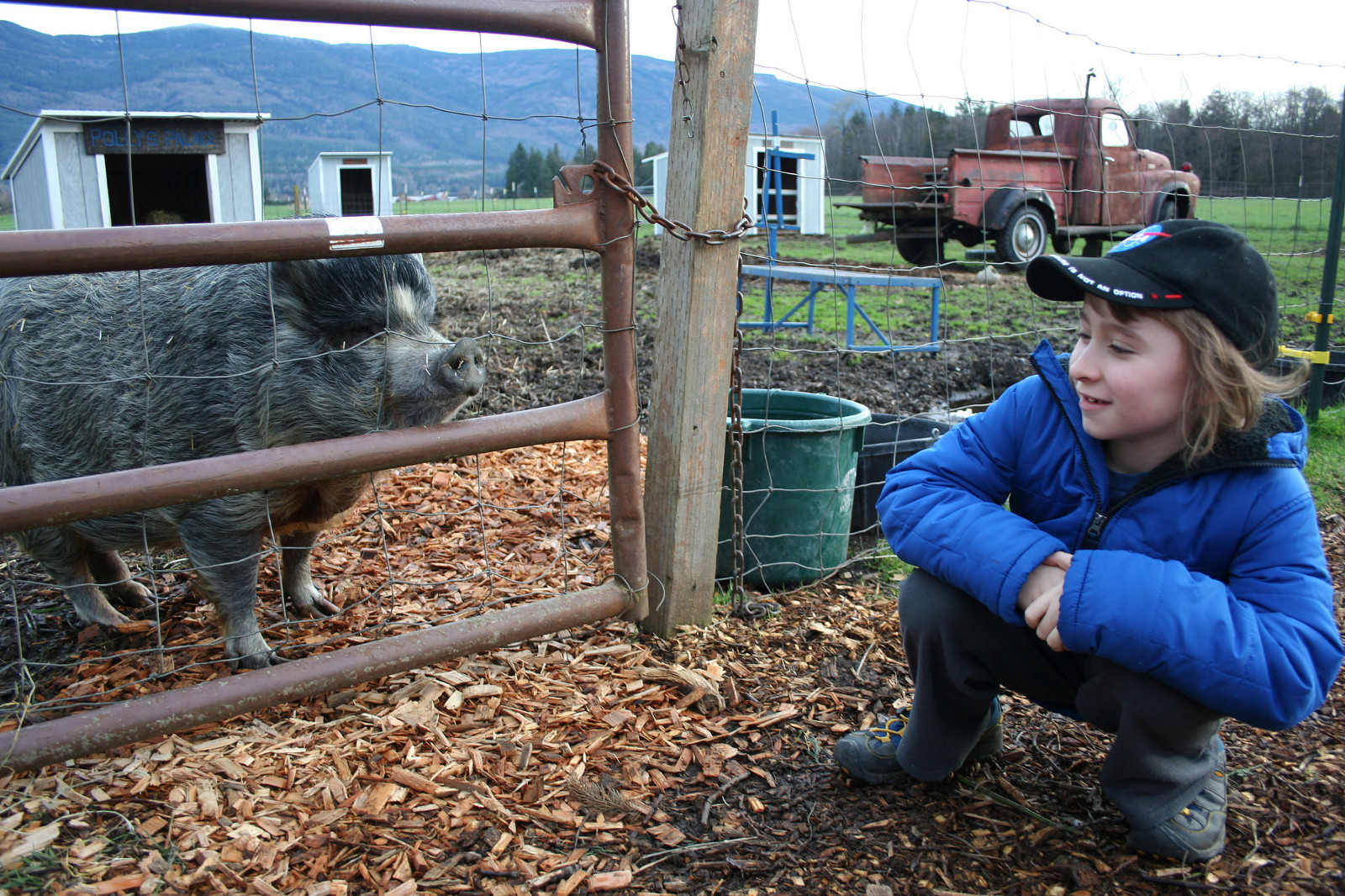Connect with the food on your plate and get a taste of country life on these farm-stay getaways
When I dug up my backyard a few years ago to try my garden-gloved hands at coaxing a half dozen heirloom tomato starts into prosperous vines, I should have done some research first. I’d have dug a much deeper hole for each plant than the root wad suggests, and spaced each start at least three feet apart. My novice gardening experience yielded no bounty to boast about, but after a winter poring over a gardening book I tried again with more success, even canning six jars of salsa.
You wouldn’t know it, but I’m a descendant of farmers. My grandparents grew up on small family farms in the fertile Ohio River Valley, tending orchards, milking dairy cows and even growing tobacco. Long gone from this world, they passed on little farmhouse wisdom to their offspring. (My only relic of this bygone family era is my grandma’s recipe for buttermilk biscuits baked in cast iron). My grandparents tilled plots of land to grow their own food because they had to, and I guess they didn’t teach us how to farm the land because they never thought we’d want to.
I pondered this as I stood in a spongy patch of clover, my rubber boots sinking into fresh rain as I watched my young son Isaac gently pet the fluffy mane of a miniature Sicilian donkey named James. We’d led James by the leash from barn stall to pasture for a lunch of tender grass, which he was now chewing noisily. Isaac has been enthralled with the farm animals at our local petting zoo since he was a wee toddler, and the pure joy on his face now was priceless. I pulled out my phone to snap a picture, and then quickly tucked it away. If ever there’s a time to savor the moment, I thought, it’s here on the farm.
My family is urban to the core, but had decided to play farmer for the weekend, choosing a farm stay at Hoehn Bend Farm, a 30-acre plot of emerald pasture along the Skagit River, just a few hours north of our Seattle home. Although we grow a few veggies in raised beds and occasionally chicken-sit our neighbor’s hens, my husband and I knew next to nothing about actual farming. Our goals were simple: Get out of the city for some country air and learn more about where our food comes from before it hits the grocery shelves.
Farm-stay vacations are thriving across Cascadia as city folk like ourselves seek authentic, rural experiences and a connection to local, organic food that’s deeper than a stop at the farmers’ market. For small-scale farmers, welcoming visitors and sharing their knowledge of rotational grazing or goat-milking techniques is not only fun, it provides needed extra cash.
“You’ll smell earth in the air (probably manure, too), cake your boots with mud and maybe even get some hay stuck in your hair — if you want to.”
On a typical farm-stay, you can help with hands-on chores and commune with barnyard animals, and then spend the night in onsite accommodations that range from rustic yurts to posh bed-and-breakfast rooms. You’ll smell earth in the air (probably manure, too), cake your boots with mud and maybe even get some hay stuck in your hair — if you want to. Farm-stay hosts are eager to share their knowledge with curious guests, and chores are both educational and optional. (No one will mind if you skip feeding scraps to the pigs in favor of an afternoon nap atop a hay bale under the apple tree.)
At the end of our two-day stay at Hoehn Bend Farm, Isaac, wearing the dirt stains on his overalls like a badge of honor, asked farmers Jean Eagleston and Terry Sapp if they could manage feeding the donkeys and chickens without him after we’d gone back home. “You’ll just have to come back and find out!” Terry told him. And we will.
Do you desire a tangible connection with your food, and don’t mind getting your hands dirty? Here are six Northwest farm stays that are sure to deepen the roots of your agricultural curiosity. For even more, check out farmstayus.com, a nonprofit project that connects travelers with the local farms and ranches that love to host them.
Nettles Farm
Lummi Island, Washington
360-758-7616 | nettlesfarm.com
When you drive off the tiny ferry (it carries just 22 cars for the 10-minute crossing) onto laid-back Lummi Island, you’ll wonder how such a sleepy, bucolic landscape became home to the region’s most beloved gastronome mecca, Willows Inn. The answer is “Slow Food”: locally sourced, locally prepared, and locally eaten. Nearly all of Willows Inn’s tasty ingredients, from spot prawns to truffle mushrooms, are foraged for or produced on Lummi Island, with the chickens, eggs, honey, fruits and veggies coming from a 5 1/2 acre plot just up the hill from the inn called Nettles Farm.
Nettles Farm is owned by Riley Stark, the founder of Willows Inn and a connesoir of heirloom-bred chickens that produce beautifully-hued eggs and flavorful meat, including his small flocks of red, white and blue Poulet de Bresse Chickens, Poulet Bleu chickens with their vibrant red combs, and Sulmthaler chickens. Stark lives on the property, and your culinary farm stay at Nettles won’t be complete without a chat with him about some of his many other passions such as foraging the island’s woods with his truffle hound Stella, or fishing for salmon off the island’s beaches using an ancient reef net technique.
Fun farm chores: Feed the chickens and goats, and gather eggs in the morning. During harvest times you can pick berries, pears and other tree fruits, veggies and herbs, and even help forage for wild edibles that Chef Blaine Wetzel uses at the Willows Inn. In summer months the farm offers a hen butchering class, de-feathering and all.
Digs for the night: Choose from two rooms, the FarmHouse and the FarmHouse Suite, which both sleep up to four people and have fully-equipped gourmet kitchens for you to create your own “slow food” during your stay. Both suites boast unique attributes–the Farmhouse has a steam shower and the Farmhouse Suite features a woodfire oven. Your breakfast fixings include fresh eggs, bacon, coffee that’s roasted right on the farm, steel-cut oats, fresh fruit and yogurt. You can reserve more farm-fresh specialty items to cook up when you book your stay, such as chickens, salmon, garden produce and more. $149-$235 nightly for two depending on season (two night minimum stay), $50 for additional guests (kids under six are free).
Hoehn Bend Farm
Sedro-Woolley, Washington
360-466-0135 | farmstayskagit.com
This working organic grass-fed cattle farm is tucked into a pastoral pocket of the North Cascades foothills. The more than two dozen reddish brown and black cows raised here are a heritage breed of Irish Dexter cattle. Your stay begins with a tour led by the owners, with Maggie the border collie bringing up the rear. They’ll introduce you to Polly, the sweet and social pot-bellied pig; a small herd of kinder goats; a trio of miniature donkeys; and two flocks of free-range hens. (Jean can tell you which hens lay the most uniquely colored eggs.) Bring kids if you have them, as this farm stay experience is especially family-friendly. Children will love counting the many vintage tractors around the farmstead, and taking turns on the rope swing hanging from an old apple tree by the cottage.
Fun farm chores: Help lead goats and donkeys out to their pastures each morning, and round up the chickens for the henhouse each evening. Dole out carrot sticks to the donkeys (they’ll gingerly pluck them right out of your hand), brush the goats, push hay to the cattle (make sure the little calves get some!) and collect eggs from the chickens. The cattle here are truly pasture-raised, so all the hay for winter feeding is grown on the farm’s 30 acres. If you’re lucky you might get to ride on the big plow through the hay field. The luckiest of all stay here in July when calves are born.
Digs for the night: The turn-of-the-century cottage is all yours and sleeps six comfortably in three bedrooms. In the fully stocked kitchen you’ll find a dozen eggs and homemade jam in the fridge to get started on a farm-fresh breakfast. A spacious mudroom helps keep messes manageable (and stores a variety of rubber boots in adult and kids’ sizes in case you forget your own). In summer, take advantage of the outdoor patio and picnic table with a view of craggy Cascade peaks. The cottage has kid-friendly extras like a crib, outlet protectors, Disney DVDs and a large basket of farm-themed books and toys. $185 per night for up to six people. Pre-approved pets welcome.
Paca Pride Guest Ranch
Granite Falls, Washington
360-691-3395 | pacaprideguestranch.com
This 17-acre homestead sits on cleared meadow and pasture just off the Mountain Loop Highway west of Verlot, encircled by foothills of fir forest that frame a glorious view of Mount Pilchuck. A herd of 20 charming and quirky Huacaya alpacas dots the hillside. These long-necked, doe-eyed beauties grow fine, dense fleece coats all year long in preparation for shearing, a popular event open to the public in late June each year. The quality hypoallergenic fiber (which comes in many rich tones like chocolate, chestnut and ivory, and doesn’t require intensive dyes) gets handspun into limited-edition Pendleton wool blankets and fashionable wares like hats and socks that are sold on-site at the ranch store.
Begin your visit with a guided tour; Paca Pride co-owner David Capocci shares his enthusiasm for the sustainable alpaca ranch, particularly the design principles of permaculture, a sustainable agriculture model that centers on working with nature rather than against it. You’ll learn about their rotational grazing system that reduces the impact on the meadows, and how they grow bright, grassy barley fodder micro greens to sustain the alpaca herd all winter long.
Fun farm chores: Alpacas are calm, gentle animals, and even young children will love hand-feeding them and giving them chin scratches and soft hugs. Help move the herd from one meadow to another. Listen for the musical humming sounds alpacas make when they feel content. Guests can also collect eggs from the ranch’s free-range chickens. Leave some time for hiking — you’re a stone’s throw from trailheads including Gold Pond (an interpretive trail for all ages and abilities) and Heather Lake (a bit of a climb more suitable for experienced hikers).
Digs for the night: The cozy Mountain View Guest Yurt is fully furnished (sleeps four with queen bed plus futon, linens, heat and electricity) for a fun family glamping adventure ($99 per night). For larger families or groups, the huge Roundhouse Yurt checks in at 730 square feet, though sleeping accommodations are more rustic on cots and air mattresses ($99 per night for four, $20 per additional person). Bathrooms with heated showers are a short stroll away. Bring your own food, pots, pans and towels.
Solstice Farm Bed and Breakfast
Chimacum, Washington
360-732-0174 | solsticefarmstay.com
If you’ve ever driven to Port Townsend you’ve passed Solstice Farm, set in the postcard-perfect Beaver Valley just south of tiny Chimacum on the Quimper Peninsula. The close-knit agricultural community is a locavore’s dream, with three weekly farmers markets, a handful of craft cideries, cheese-makers and several organic farms, Solstice among them.
These 33 acres of pastoral beauty are the pride and joy of farmers Jim Rueff and Linda Davis, who began grazing sheep and other livestock in 2002 and added a sunny, modern farmhouse bed-and-breakfast to the property six years later. With the help of local farm interns they raise several dozen market lambs each year, plus pigs and free-range hens. They also plant a sprawling flower and vegetable garden, and tend to a young apple orchard.
Fun farm chores: Help bottle-feed baby lambs, feed the sheep and help herd them to pasture, and gather eggs from the free-range hens. There’s always work to do in the veggie garden, from planting seeds and thinning veggie starts to digging up potatoes and carrots at harvest time.
Digs for the night: The farmhouse has two guest suites with baths. Common areas in the house include a large atrium with 20-foot-high windows, the perfect spot to watch the sun set over pasture. A farm-fresh breakfast is included, with homemade fare like omelets (made with eggs from the hens, of course), iron-skillet Dutch baby pancakes with seasonal berries, citrus scones and even lamb sausage made at the farm. $120 per suite nightly (special $100 winter rate through May 1, 2018).
Wilson Ranches Retreat
Fossil, Oregon
866-763-2227 | wilsonranchesretreat.com
Ever wonder where that Oregon beef on your hamburger came from? You can saddle up and lend a lasso with fifth-generation ranchers Phil and Nancy Wilson to find out. They love to share their Western way of life with guests on their 9,000 acre working cattle farm and hay ranch set in the heart of Eastern Oregon’s painted desert.
Fun farm chores: The Wilsons run cattle drives throughout the year, and they have plenty of extra boots, cowboy hats and saddlebags for you to join in. Learn about their sustainable twice-over grazing program that promotes perennial grasses. Guests are also invited to mount up for scenic horseback rides and pasture moves, and to check the fences (depending on what you find, you may get to learn the pioneer art of mending a fence!) You’re in for a real treat in spring months (February through April) as new calves are born at all hours of the day. For a respite from ranch life, you can’t beat a hike in the John Day Fossil Beds nearby.
Digs for the night: The ranch guest house is a 1910 Sears, Roebuck & Co. abode (a bonus for fans of these vintage homes) with six ranch-style guest rooms decked out in antler lamps and horseshoe hangers. Every morning starts with a hearty, family-style “ranch breakfast” with fare like biscuits and gravy, farm-fresh eggs, muffins and oatmeal. Room rates are $129–$159 per night, and some activities like the guided horseback ride cost extra.
Leaping Lamb Farm Stay
Alsea, Oregon
541-487-4966 | leapinglambfarm.com
A locavore is a person who eats locally grown or produced food whenever possible. Spend a few days with Scottie and Greg Jones on their bucolic farmstead and you, too will be locavores by the end of your trip. The Jones’ passion for organic, sustainable farming and pasture-to-plate food is inescapably contagious.
First homesteaded by pioneers in 1862, this farm sits in an often-misty corner of the Willamette Valley that meets Coast Range foothills in a confluence of bright green beauty. On this picturesque landscape graze fluffy sheep (meat from the Katahdin lambs are sold in shares directly to local customers), turkeys, chickens, horses, goats, a peacock and, of course, farm dogs and cats. Leaping Lamb grows its own hay for the livestock and also tends to an orchard of blueberries, raspberries, apples, plums, grapes and more.
Fun farm chores: Choose from a variety of farm tasks, from gathering eggs each morning and bottle-feeding the lambs to brushing a miniature donkey and harvesting veggies from the garden. In late summer and autumn there’s ripe fruit to pick, jam to put into jars and cider to press. In between feeding scraps to the chickens and corralling sheep, you can pet one of the many the farm cats, or play a round of croquet on the lawn.
Digs for the night: The cute farm cottage has two bedrooms with queen beds and sleeps six. Cook meals in the full kitchen equipped with basic condiments and all the cooking supplies you’ll need. There’s also a dining area and full living room. On chilly evenings, cozy up with Pendleton blankets on the spacious porch and enjoy the gentle gurgling of Honey Grove Creek. The farm-fresh fixings to make breakfast in your kitchen are included. $250 per night mid-March through October and on holidays, $175 per night November through mid-March.
Lauren Braden is a travel and recreation writer based in Seattle. Her work focuses on sustainable adventure travel that strengthens local communities. Read about her family’s travels in Cascadia and get more local trip ideas at nwtripfinder.com.
All photos by Lauren Braden.
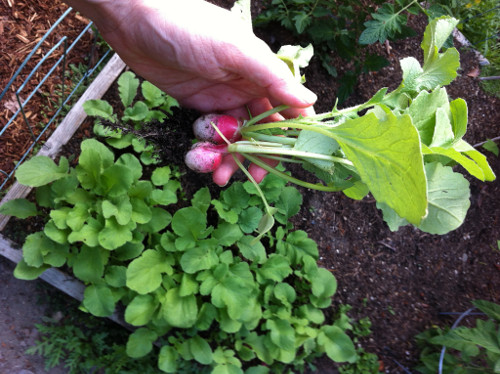
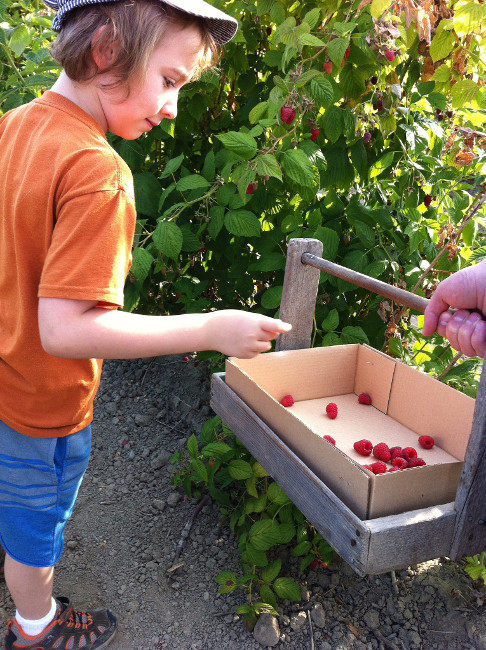
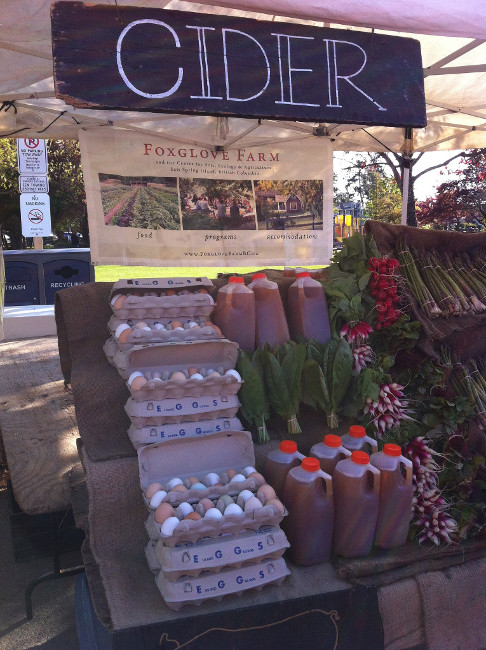
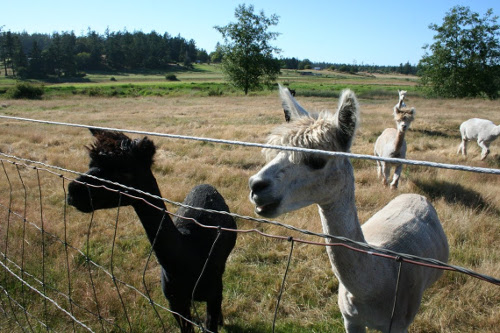
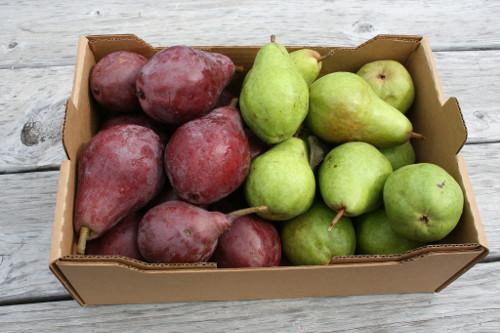
Farmer for a day
Get a taste of local farm life on one of these mini-adventures in a countryside near you.
Work on a real farm. Woodinville’s 21 Acres is a nonprofit farm focused on sustainable farming practices. They host field trips, farm tours, demo classes and youth farm camps. The “classroom” is acres of pasture with livestock and vegetable gardens that yield goodies destined for local farmers markets (and its own on-site farm store).
Milk a suburban cow. A bit of wild in the city, Kelsey Creek Farm in Bellevue is a scenic working farm managed by the city’s parks department for preservation and education. The farm’s pastures are dotted with sheep, goats, pigs, chickens, rabbits and ducks. It’s free to enter and view the cute barnyard animals, but for hands-on learning you’ll want to reserve a guided tour or take one of their farm classes.
Plan your own coop. Seattle Farm School (Seattle): Got a yearning for backyard chickens, but don’t know where to start? Want to build some raised beds, or can jam and pickles? Seattle Farm School hosts workshops year-round at various locations in West Seattle.
Book a “Farm-to-Fork” dinner. Many local organic farms host multi-course dinner events outdoors in the summer months. Guests mingle over local wine among rows of corn and patches of peas, then take their seats at an extra-long table for a prix-fix gourmet meal made from produce and meats grown in the pastoral fields around them. It’s a food experience so hyper-local that you may be able to spot the hole in the soil from which the roasted beet on your fork was just plucked. Check with your region’s farm cooperative or websites like eventbrite.com for upcoming farm dinners in your area.
Learn how cheese is made. Yogurt, ricotta and chèvre–oh my! At Mystery Bay Farm on Marrowstone Island, this family of small-scale artisan cheesemakers leads tours showing how their fine cheeses are made. From milking their goats to infusing soft cheeses with fragrant garden herbs, you’ll learn how sustainable cheese is crafted start to finish.
Tour local farmstands. Rural areas like Vashon Island and the Hood River Valley host dozens of them—rustic unmanned farm stands along the side of the road whose shelves are loaded with tasty things for sale. Payment is on the honor system, so bring cash. You select your eggs, bundle of radishes, cut flowers and pints of cherry tomatoes, then add up your total and drop your payment into the slot provided. To agri-tourists, the old-fashioned farmstand system is wonderfully nostalgic; to busy farmers it is a practical revenue stream.
U-Pick your own berries. Nothing compares to the taste of a raspberry just plucked from its vine and still warm from the sun. Why buy days-old fruit from the grocery store when you can head to a local farm and harvest your own at peak ripeness? Pick a whole flat to make jam, or freeze them for smoothies. Look for unique offerings, like Linbo Blueberry Farm in Puyallup for heirloom varieties of blueberries, or Sherwood Orchards in the Tualatin Valley southeast of Oregon for more than 80 heirloom types of apples set in an old-growth orchard.
Join a CSA. Put your money where you mouth is! When you subscribe to a Community Supported Agriculture box, you connect the food on your dinner plate with your favorite farm’s weekly harvest, delivered to your doorstep or a designated pickup spot in your neighborhood. It’s like being a shareholder in your local organic farm. Local Harvest helps you find a local CSA by state or zip code.
Did you find this article useful? If so, please take a moment to help support the talented writers who make stories like this possible:

